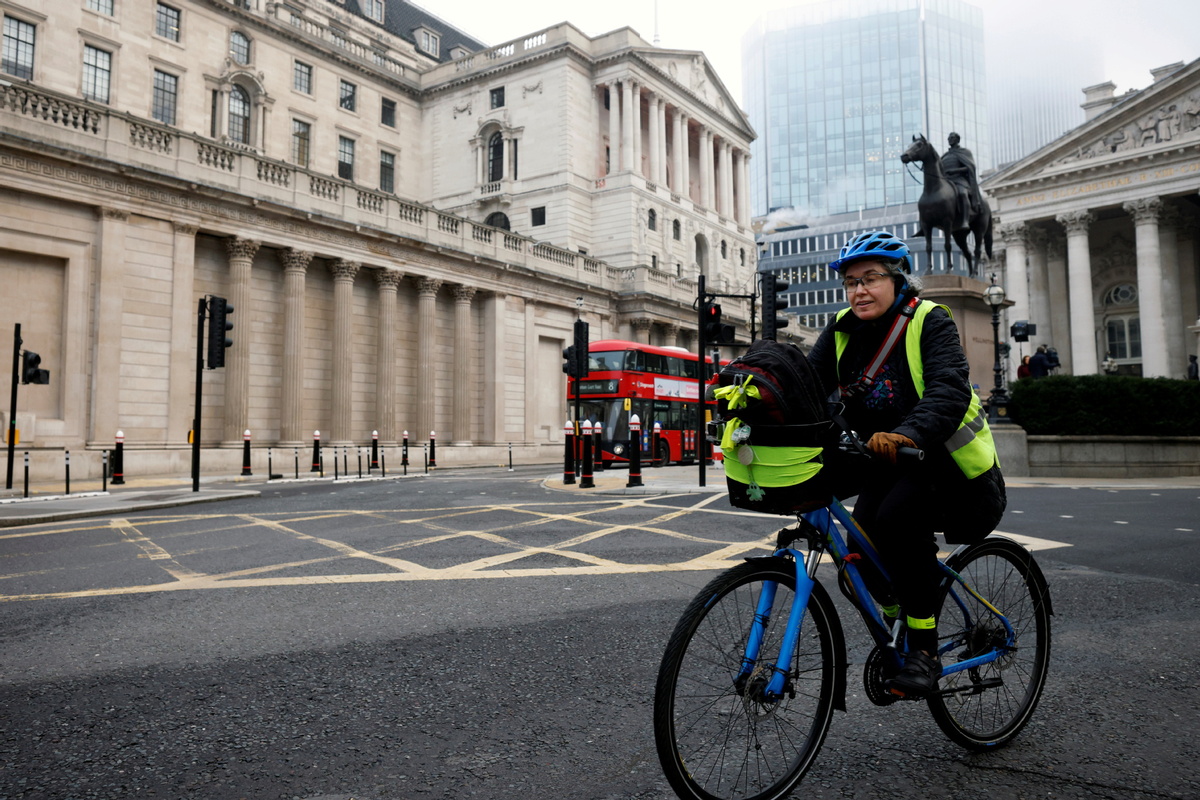Bank of England warns over economic outlook as pandemic worsens
By JULIAN SHEA in London | China Daily Global | Updated: 2020-11-06 09:06

The start of England's second period of novel coronavirus lockdown has been accompanied by an economic injection of 150 billion pounds ($196 billion) by the Bank of England, with a warning attached that the latest period of national shutdown will come at a further cost.
The unanimous decision by the nine members of the Bank's monetary policy committee to endorse the latest quantitative easing program means it has now released 875 billion pounds into the bloodstream of the economy to keep the country going when so much business is grinding to a halt, which will be particularly hard-hitting coming as it does in the run-up to Christmas.
"We believe there is value in acting quickly and strongly to support the economy and avoid the risks of any short-term disruption," said the Bank's governor, Andrew Bailey, who took over the role at the start of March this year, just as the pandemic hit.
He also hinted at further intervention in the future if required, adding "we are here to do everything we can to support the people of this country, and we'll do it and will do it quickly".
Having initially expected the economy to recover from this year's damage in 2021, the Bank said the new cash boost was a reaction to downgraded forecasts, which now expected the economy to remain at below its pre-pandemic high until the first quarter of 2022.
Interest rates have been kept at 0.1 percent, a record low in the Bank's 326-year history. GDP for 2020 is predicted to fall by 11 percent, and the unemployment rate, currently 4.5 percent, is expected to peak at 7.75 percent by next summer, but one bit of marginally better news was that the Bank did not forecast a double-dip recession.
Output is expected to rise by 2.4 percent in the first quarter of the new year, even taking into account the impact of economic complications following the end of the Brexit transition period, whether or not an agreement is reached with the European Union.
The Bank indicated that it did expect some sort of deal to be signed by the two sides before the end of the year, avoiding the prospect of a no-deal Brexit, but even if that does happen, the disruption caused by adjustment to new arrangements, and companies' lack of preparedness, is still likely to have a sizeable negative impact.
Bailey also said the Bank would "look into" how details of its latest decision were leaked to The Sun newspaper. The Bank's announcement had been due to take place at noon but was moved forward so it did not clash with a statement in Parliament by Chancellor Rishi Sunak, in which he announced the furlough job support program will be extended until March.
























